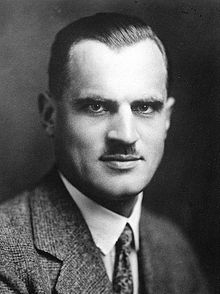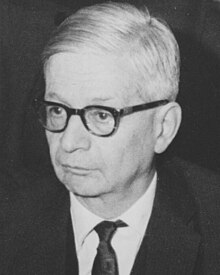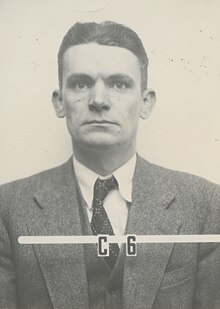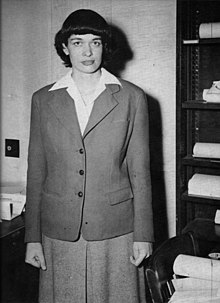Portal:Physics
The Physics Portal


Physics is the scientific study of matter, its fundamental constituents, its motion and behavior through space and time, and the related entities of energy and force. Physics is one of the most fundamental scientific disciplines. A scientist who specializes in the field of physics is called a physicist.
Physics is one of the oldest academic disciplines. Over much of the past two millennia, physics, chemistry, biology, and certain branches of mathematics were a part of natural philosophy, but during the Scientific Revolution in the 17th century, these natural sciences branched into separate research endeavors. Physics intersects with many interdisciplinary areas of research, such as biophysics and quantum chemistry, and the boundaries of physics are not rigidly defined. New ideas in physics often explain the fundamental mechanisms studied by other sciences and suggest new avenues of research in these and other academic disciplines such as mathematics and philosophy.
Advances in physics often enable new technologies. For example, advances in the understanding of electromagnetism, solid-state physics, and nuclear physics led directly to the development of technologies that have transformed modern society, such as television, computers, domestic appliances, and nuclear weapons; advances in thermodynamics led to the development of industrialization; and advances in mechanics inspired the development of calculus. (Full article...)
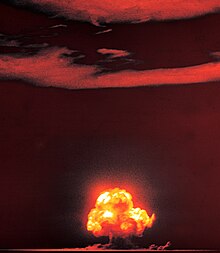
Trinity was the code name of the first detonation of a nuclear weapon, conducted by the United States Army at 5:29 a.m. MWT (11:29:21 GMT) on July 16, 1945, as part of the Manhattan Project. The test was of an implosion-design plutonium bomb, nicknamed "The Gadget", of the same design as the Fat Man bomb later detonated over Nagasaki, Japan, on August 9, 1945. Concerns about whether the complex Fat Man design would work led to a decision to conduct the first nuclear test. The code name "Trinity" was assigned by J. Robert Oppenheimer, the director of the Los Alamos Laboratory, possibly inspired by the poetry of John Donne.
The test, both planned and directed by Kenneth Bainbridge, was conducted in the Jornada del Muerto desert about 35 miles (56 km) southeast of Socorro, New Mexico, on what was the Alamogordo Bombing and Gunnery Range (renamed the White Sands Proving Ground just before the test). The only structures originally in the immediate vicinity were the McDonald Ranch House and its ancillary buildings, which scientists used as a laboratory for testing bomb components. Fears of a fizzle prompted construction of "Jumbo", a steel containment vessel that could contain the plutonium, allowing it to be recovered; but ultimately Jumbo was not used in the test. On May 7, 1945, a rehearsal was conducted, during which 108 short tons (98 t) of high explosive spiked with radioactive isotopes was detonated. (Full article...)
Did you know -

- ...that while Albert Einstein is most famous for his Theory of Relativity, he was awarded the Nobel Prize for his explanation of the photoelectric effect?
- ...that gravitational tidal accelerations are the result of the curvature of spacetime?
- ...that the blue glow of the Cherenkov effect is due to electrons moving faster than the speed of light in water?
Selected image -

Astrophysics is a science that employs the methods and principles of physics and chemistry in the study of astronomical objects and phenomena. As one of the founders of the discipline, James Keeler, said, astrophysics "seeks to ascertain the nature of the heavenly bodies, rather than their positions or motions in space—what they are, rather than where they are", which is studied in celestial mechanics. (Full article...)
Related portals
January anniversaries
1 January
- 1894 - Satyendra Nath Bose's birthday.
- 1801 - Giuseppe Piazzi is the first to notice the dwarf planet Ceres. However, very soon astronomers lose sight of its orbital path. After some months, Giuseppe Piazzi finally calculates its correct position on December 31.
- 1985 - Ernie Wise, a comedian, places the first mobile phone call in the UK.
2 January
- 2 January 1822 - Rudolf Clausius was born.
8 January
- 8 January 1942 - Stephen Hawking was born, on the same day that Galileo Galilei died in 1642.
15 January
- 15 January 1908 - Edward Teller was born.
General images
Categories

Fundamentals: Concepts in physics | Constants | Physical quantities | Units of measure | Mass | Length | Time | Space | Energy | Matter | Force | Gravity | Electricity | Magnetism | Waves
Basic physics: Mechanics | Electromagnetism | Statistical mechanics | Thermodynamics | Quantum mechanics | Theory of relativity | Optics | Acoustics
Specific fields: Acoustics | Astrophysics | Atomic physics | Molecular physics | Optical physics | Computational physics | Condensed matter physics | Nuclear physics | Particle physics | Plasma physics
Tools: Detectors | Interferometry | Measurement | Radiometry | Spectroscopy | Transducers
Background: Physicists | History of physics | Philosophy of physics | Physics education | Physics journals | Physics organizations
Other: Physics in fiction | Physics lists | Physics software | Physics stubs
Physics topics
Classical physics traditionally includes the fields of mechanics, optics, electricity, magnetism, acoustics and thermodynamics. The term Modern physics is normally used for fields which rely heavily on quantum theory, including quantum mechanics, atomic physics, nuclear physics, particle physics and condensed matter physics. General and special relativity are usually considered to be part of modern physics as well.
More recognized content
Associated Wikimedia
The following Wikimedia Foundation sister projects provide more on this subject:
-
Commons
Free media repository -
Wikibooks
Free textbooks and manuals -
Wikidata
Free knowledge base -
Wikinews
Free-content news -
Wikiquote
Collection of quotations -
Wikisource
Free-content library -
Wikiversity
Free learning tools -
Wikivoyage
Free travel guide -
Wiktionary
Dictionary and thesaurus
Sources
Portals on Wikipedia






